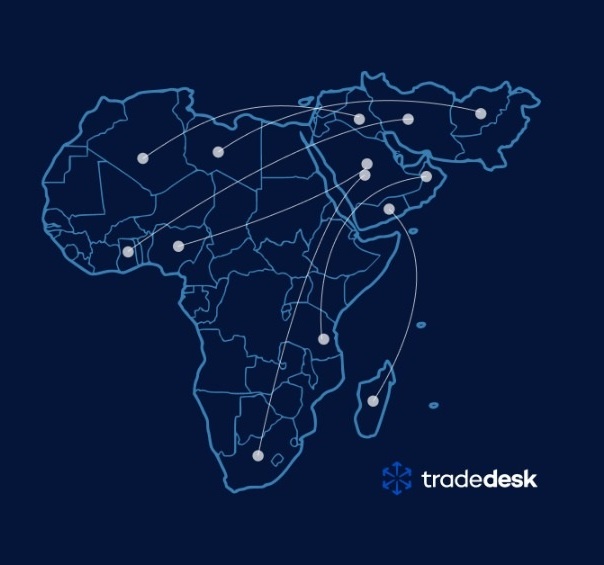Africa Market Entry Checklist
Date Posted: October 26, 2022
_1666790264.jpg)
Expanding into or establishing a business in Africa is a smart move at the moment. First, Africa’s potential to sustain businesses is enormous. You can begin a business or invest in sectors ranging from aviation, medicine, transportation, entertainment, etc. In addition, Africa remains an untapped region; there aren’t many government policies and regulations. This leaves a lot of room for businesses to grow and make huge returns within a short period. However, it is important to study the African business climate before entry. It saves you from mistakes and regrets later on. Here, we look at the African markets entry checklist to pay attention to. Read on to learn more. Here are some of the factors to pay attention to: It is surprising how many people fail to recognize this. Even people who seek to establish businesses in African countries make this mistake. The African continent is large and is home to more than 54 countries. It is almost impossible to find homogeneity in any form. So, what applies to one country may not apply to another. Learn the peculiarities of the country you want to set up business in before setting up shop. It may serve you to visit the country instead of reading reports. You will be better able to assess things and make decisions this way. Although there is ease of entry into the African market, it doesn’t mean that challenges are altogether nonexistent. The most pervading of these barriers are those instituted by the government. African governments sometimes take extremely protectionist stances. This could be in the form of embargos placed on certain sectors of the economy. Hence, you may be able to have businesses dealing with, say, ammunition, etc. Furthermore, governments could expropriate or nationalize foreign-owned businesses in extreme situations. Therefore, before heading there, you need to be aware of the policies in place in any country you are considering. This is non-negotiable to run a business in Africa successfully. As mentioned earlier, African countries are diverse. Likewise, cultural values and expectations are also diverse. For instance, offering “incentives” to get a task done may not seem appropriate in many regions. However, that could be tolerated or even demanded in most African countries. It behoves you to identify these cultural differences and work around them. You will be doing yourself and your business a favour by becoming familiar with the local network. African systems are mostly communal. People rely on personal favours, even in corporate spaces, to get things done. Thus, the approval you seek may depend on who you know up the chain of command. Cultivating long-lasting relationships takes time. However, it will surely be worth it in the long run. Do not make the mistake of expecting immediate returns from your investments. Generally, successfully running a business in a new territory requires time. Beyond that, Africa presents peculiar challenges. You will need time to master the terrain, get familiar with (the many) red tapes, and get entrenched in the business space. Thus, while setting up a business in Africa, remember that the results might take a while to show. Most African countries either have English or French as their lingua franca. However, indigenous languages are the “unofficial” languages for business. Worse still, these indigenous languages are numerous. Carry out due diligence by finding the primary language of the place you want to set up. Have an interpreter work with you at least during the establishment period. You might be surprised how easily you can get things done when someone in your team speaks the people’s language. It is one thing to have Africa as your business destination; it is another to choose a business that will thrive in the region. Below are some of the proven businesses that have the potential to succeed in Africa. There appears to be a tech awakening in Africa. Tech-related businesses are springing up each day. Tech solutions to diverse problems are also being engineered. Young people are at the helm of these changes. It will be wise to get into the African tech and Internet space. You could be an angel investor even if you are uninterested in actively running a business. The African continent is sunny. This makes the region ripe for any solar-related business. But unfortunately, this sector remains untapped. Lack of electricity is an endemic problem in Africa. Thus, anyone venturing into solar power generation will tap into a good mine. More than 40 per cent of the land mass in Africa is arable. In addition, the good weather, abundant rainfall, and little drought make the African region perfect for agriculture. You can venture into this space. There are numerous options to explore. You can engage in farming. Alternatively, you can invest in businesses and individuals who are involved in agriculture. Even more so, crowd farming is gaining prominence in the region. Whatever option you take, there is the possibility of hitting a home run. Waste management is another important business area you may want to consider. The world has reached the point where waste can be recycled into various products. However, Africa has not caught up fully with that. Pollution caused by improper waste disposal is a big challenge for many African countries. This is an area you could step into also. There are so many ways to turn waste into money. You need to find one that works for you and stick with it. The African entertainment ecosystem has become a force to be reckoned with globally. The entertainment industry in Africa is one truly global sector. From movies to music to literature, Africans are producing content consumed worldwide. This means that there is a lot of money to be made in the entertainment space. If your business caters to any aspect of the industry, you may just have found your goldmine. Entering the African market can be easy or Herculean. How it will turn out for you will depend on how prepared you are. This article shares some things to note before entering the African market. Preparing using this checklist may not eliminate the challenges you will face. However, it will certainly make the transition a lot easierTop Considerations Before Entry Into the African Market
Africa Is Not a Country
Governmental Barriers To Entry Exist
Take Note of Cultural Differences
Get Familiar With the Locals
Play the Long Game
Language Problems May Pose Barriers
Businesses To Begin in Africa
Technology Business
Solar Business
Agriculture
Waste Management
Media and Entertainment
Final Thoughts


_1687337514.jpg)
_1684612515.jpg)

_1666791043.jpg)
_1666790839.jpg)
_1666790690.jpg)